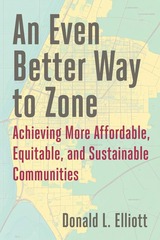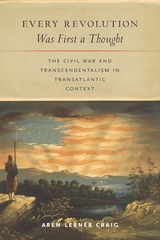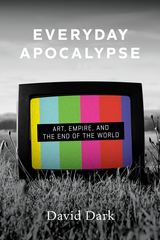4 books about Even
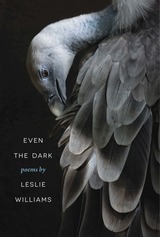
Even the Dark
Leslie Williams
Southern Illinois University Press, 2019
The speaker in this collection seeks an understanding of the darkness of suicide and mortal illness in the light of Christian faith. Poet Leslie Williams captures this light in tender and piercing poems that traverse a grieving world where healing is always possible but never assured: “my God can do this, but my God / might not.”
Through restless questioning, the speaker finds a balm for suffering in the divine beauty and mystery of the natural world. Seven prose poems woven into the collection deal with different aspects of a young girl’s life-threatening illness. Five additional poems wrestle with the grief of suicide and the emptiness afflicting those left behind. Other poems in the collection reflect on how to approach daily life while coping with heartbreak and express wonder about our responsibilities in a variety of roles: as parents, as neighbors, as an imagined anchoress, as children of God.
The language remains beautiful and precise throughout, whether the speaker lies “in a gully cracked / with stars” or tells herself, “It’s a handmade raft I live on.” The speaker entreats, as in Psalm 27, “teach me how to live.” Dwelling attentively in the abundance and mystery of creation, the book aims to offer a comfort and peace that might “even the dark.”
Through restless questioning, the speaker finds a balm for suffering in the divine beauty and mystery of the natural world. Seven prose poems woven into the collection deal with different aspects of a young girl’s life-threatening illness. Five additional poems wrestle with the grief of suicide and the emptiness afflicting those left behind. Other poems in the collection reflect on how to approach daily life while coping with heartbreak and express wonder about our responsibilities in a variety of roles: as parents, as neighbors, as an imagined anchoress, as children of God.
The language remains beautiful and precise throughout, whether the speaker lies “in a gully cracked / with stars” or tells herself, “It’s a handmade raft I live on.” The speaker entreats, as in Psalm 27, “teach me how to live.” Dwelling attentively in the abundance and mystery of creation, the book aims to offer a comfort and peace that might “even the dark.”
[more]
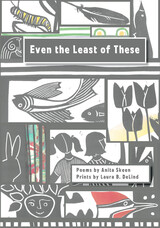
Even the Least of These
Anita Skeen
Michigan State University Press, 2024
Even the Least of These is a collaboration between two talented friends—award-winning poet Anita Skeen and renown printmaker Laura B. DeLind. Seeking to navigate the isolation and uncertainty of the covid-19 pandemic, they challenged each other’s ability to see the small things often neglected and unnoticed. The result is a thoughtful and often joyful collection of poetry and prints that celebrate an awareness of the world around us and reflect on past experiences, lessons learned (or not). This collaboration includes a collection of prints that evoke the feeling of the poems, ranging from humorous to heart-rendering.
[more]
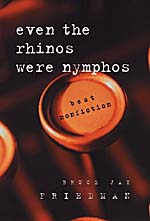
Even the Rhinos Were Nymphos
Best Nonfiction
Bruce Jay Friedman
University of Chicago Press, 2000
A few years ago, Christopher Buckley wrote of Bruce Jay Friedman in the New York Times Book Review that he "has been likened to everyone from J. D. Salinger to Woody Allen," but that "he is: Bruce Jay Friedman, sui generis, and no mean thing. No further comparisons are necessary." We are happy to report that he remains the same Bruce Jay Friedman in his unique, unblinking, and slightly tilted essays—collected here for the first time—in Even the Rhinos Were Nymphos.
A butler school in Houston, a livestock auction in Little Rock, a home for "frozen guys" in California, JFK's humidor in Manhattan—all are jumping off points for Friedman's baleful and sharply satirical scrutiny of American life and behavior in the second half of the twentieth century. Travel with Friedman from Harlem to Hollywood, from Port-au-Prince to Etta's Eat Shop in Chicago. In these pieces, which were published in literary and mass-circulation magazines from the 1960s to the 1990s, you'll meet such luminaries as Castro and Clinton, Natalie Wood and Clint Eastwood, and even Friedman's friends Irwin Shaw, Nelson Algren, and Mario Puzo. Friedman is a master of the essay, whether the subject is crime reporting ("Lessons of the Street"), Hollywood shenanigans ("My Life among the Stars"), or his outrageous adventures as the editor of pulp magazines (the classic "Even the Rhinos Were Nymphos"). We could sing his praises as a journalist, humorist, and social critic. But, as Buckley tells us, being Bruce Jay Friedman is enough.
Bruce Jay Friedman is the author of seven novels (including The Dick, Stern, and A Mother's Kisses), four collections of short stories, four full-length plays (including Scuba Duba and Steambath), and the screenplays for the movies Splash and Stir Crazy.
A butler school in Houston, a livestock auction in Little Rock, a home for "frozen guys" in California, JFK's humidor in Manhattan—all are jumping off points for Friedman's baleful and sharply satirical scrutiny of American life and behavior in the second half of the twentieth century. Travel with Friedman from Harlem to Hollywood, from Port-au-Prince to Etta's Eat Shop in Chicago. In these pieces, which were published in literary and mass-circulation magazines from the 1960s to the 1990s, you'll meet such luminaries as Castro and Clinton, Natalie Wood and Clint Eastwood, and even Friedman's friends Irwin Shaw, Nelson Algren, and Mario Puzo. Friedman is a master of the essay, whether the subject is crime reporting ("Lessons of the Street"), Hollywood shenanigans ("My Life among the Stars"), or his outrageous adventures as the editor of pulp magazines (the classic "Even the Rhinos Were Nymphos"). We could sing his praises as a journalist, humorist, and social critic. But, as Buckley tells us, being Bruce Jay Friedman is enough.
Bruce Jay Friedman is the author of seven novels (including The Dick, Stern, and A Mother's Kisses), four collections of short stories, four full-length plays (including Scuba Duba and Steambath), and the screenplays for the movies Splash and Stir Crazy.
[more]
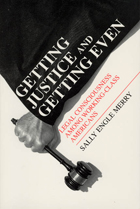
Getting Justice and Getting Even
Legal Consciousness among Working-Class Americans
Sally Engle Merry
University of Chicago Press, 1990
Ordinary Americans often bring family and neighborhood problems to court, seeking justice or revenge. The litigants in these local squabbles encounter law at its boundaries in the corridors of busy city courthouses, in the offices of court clerks, and in the church parlors used by mediation programs.
Getting Justice and Getting Even concerns the legal consciousness of working class Americans and their experiences with court and mediation. Following cases into and through the courts, Sally Engle Merry provides an ethnographic study of local law and of the people who use it in a New England city. The litigants, primarily white, native-born, and working class, go to court because as part of mainstream America they feel entitled to use its legal system. Although neither powerful nor highly educated, they expect the law's support when they face intolerable infringements of their rights, privacy, and safety. Yet as personal problems enter the legal system and move through mediation sessions, clerk's hearings, and prosecutor's conferences, the citizen plaintiff rapidly loses control of the process. Court officials and mediators interpret and characterize the meaning of these experiences, reframing and categorizing them in different discourses. Some plaintiffs yield to these interpretations, but others resist, struggling to assert their own version of the problem.
Ultimately, Merry exposes the paradox of legal entitlement. While going to court allows an individual to dominate domestic relationships, the litigant must increasingly yield control of the situation to the court that supplies that power.
Getting Justice and Getting Even concerns the legal consciousness of working class Americans and their experiences with court and mediation. Following cases into and through the courts, Sally Engle Merry provides an ethnographic study of local law and of the people who use it in a New England city. The litigants, primarily white, native-born, and working class, go to court because as part of mainstream America they feel entitled to use its legal system. Although neither powerful nor highly educated, they expect the law's support when they face intolerable infringements of their rights, privacy, and safety. Yet as personal problems enter the legal system and move through mediation sessions, clerk's hearings, and prosecutor's conferences, the citizen plaintiff rapidly loses control of the process. Court officials and mediators interpret and characterize the meaning of these experiences, reframing and categorizing them in different discourses. Some plaintiffs yield to these interpretations, but others resist, struggling to assert their own version of the problem.
Ultimately, Merry exposes the paradox of legal entitlement. While going to court allows an individual to dominate domestic relationships, the litigant must increasingly yield control of the situation to the court that supplies that power.
[more]
READERS
Browse our collection.
PUBLISHERS
See BiblioVault's publisher services.
STUDENT SERVICES
Files for college accessibility offices.
UChicago Accessibility Resources
home | accessibility | search | about | contact us
BiblioVault ® 2001 - 2025
The University of Chicago Press


